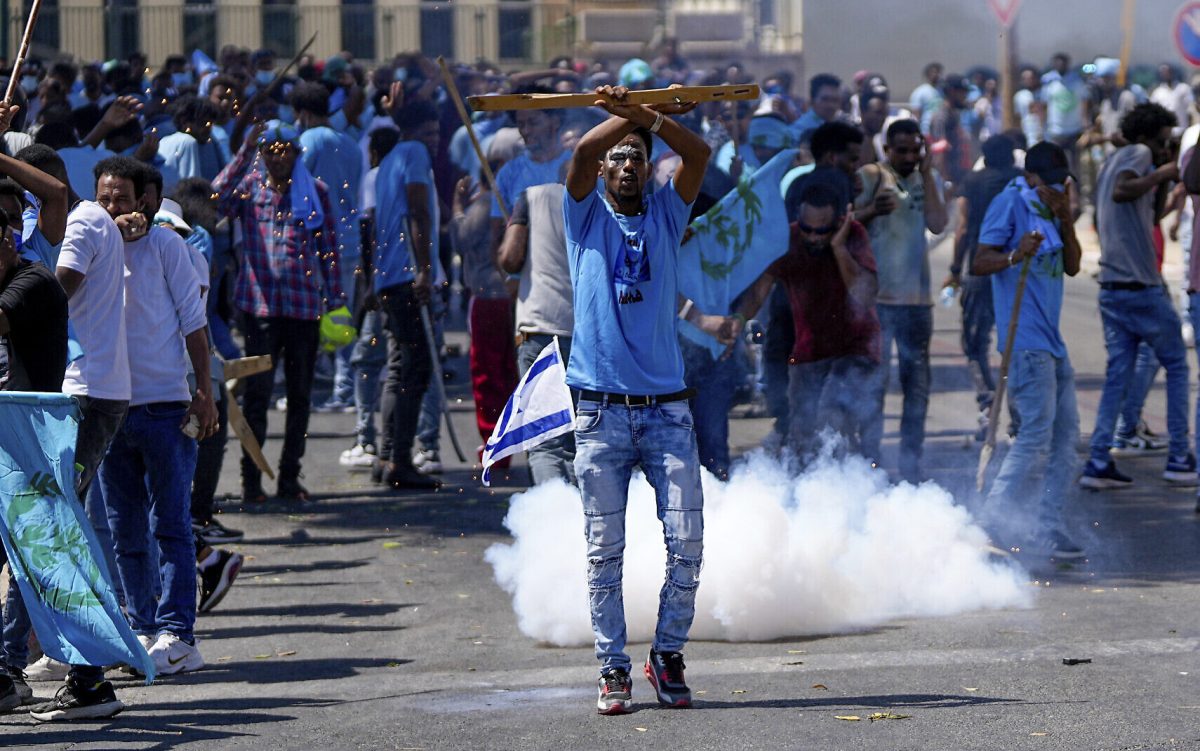The remarks came a day after bloody protests by rival groups of Eritreans in south Tel Aviv left dozens of people injured.
“We want harsh measures against the rioters, including the immediate deportation of those who took part,” Netanyahu said in a special ministerial meeting called to deal with the aftermath of the violence on Sunday.
He requested that the ministers present him with plans “for the removal of all the other illegal infiltrators,” and noted in his remarks that the Supreme Court struck down some measures meant to coerce the refugees to leave.
Under international law, Israel cannot forcibly send migrants back to a country where their life or liberty may be at risk.
Ahead of an official visit to Cyprus, Netanyahu stated the ministerial team was seeking to deport 1,000 supporters of the Eritrean government who were involved in Saturday’s violence.
“They have no claim to refugee status. They support this regime,” Netanyahu continued, adding, “If they support the regime so much, they would do well to return to their country of origin.”
About 25,000 African migrants live in Israel, mainly from Sudan and Eritrea, who say they fled conflict or repression. Israel recognizes very few as asylum seekers, seeing them overwhelmingly as economic migrants, and says it has no legal obligation to keep them.
On Sunday, Israel’s far-right National Security Minister Itamar Ben-Gvir visited the site of the unrest, voicing his support for the police and calling for those who broke the law to be placed in detention until they are deported.
Some people heckled Ben-Gvir as he walked with a police escort, telling him to “go home.”
Earlier on Saturday, Eritreans – supporters and opponents of Eritrea’s government – faced off with construction lumber, pieces of metal and rocks, smashing shop windows and police cars.
Israeli police in riot gear shot tear gas, stun grenades and live rounds while officers on horseback tried to control the protesters.
Netanyahu stressed Sunday that he didn’t think deporting supporters of the Eritrean government would be a problem.
Israel recognises very few as asylum seekers, seeing them overwhelmingly as economic migrants, and says it has no legal obligation to keep them.
The country has tried a variety of tactics to force them out, including sending some to a remote prison, holding part of their wages until they agree to leave the country or offering cash payments to those who agree to move to another country, somewhere in Africa. Critics accuse the government of trying to coerce the migrants into leaving.
